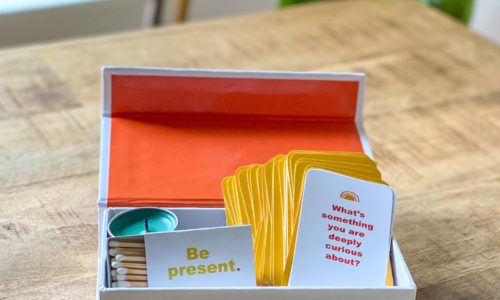Sharing stories may be the best gift we can give each other. I am grateful to Erin Martin, an Acton mom, who most generously sent me this story to share with you:
It was nearing 6:30am and I found myself losing focus on the last part of my workout. My ears were straining to listen for my 10 year old daughter’s footsteps upstairs. Was she up and getting herself ready for school? Was she making her way to the piano?
Our family routine for many years has been that she completes her 30-45 minute piano practice in the mornings, before breakfast. She enjoys playing music upon waking, and like most families, our afternoons can be hectic with after-school activities, family dinners, etc. The few afternoons each week she has unscheduled, she treasures the downtime and boredom.
Lately, I found myself interrupting my own intentional practice of morning exercise to call up to her from the bottom of the stairs: “Are you up yet? Are you finished getting ready? It’s 7:05 so you need to start your piano!” This was a new dynamic fraught with frustration for both of us. We’ve tried hard to avoid unnecessary power struggles in parenting and yet, here I was, reminding, chiding, and prodding each morning like clockwork. The tension in my voice amplified by irritation in stopping my own routine.
While eating breakfast a week ago, my daughter paused, looked up at me and said kindly but firmly, “I really think you need to let me experience the natural consequences of not getting my piano practice done or not waking up on time. I really value having free time in the afternoons, and if you let me fail, I’d have the natural consequence of having to do get my piano done after school instead of relaxing.” Her words. Verbatim.
I was stunned.
But I really shouldn’t have been.
This is what several years in the Acton studio prepares our kids to do: to take responsibility for their actions, to be ruthlessly self-reflective, and control of their own destinies.
She knows how to hold herself and others accountable. She’s had experience learning how to craft peer feedback and respond to constructive criticism. While her words to me were beautifully warm-hearted but tough-minded, in the hours that followed they echoed in my ears a few different ways:
Stop rescuing me.
Let me figure it out.
I’m capable, and it’s ok if I fail.
I’d rather be angry with myself than feel scolded by you.
Some lessons are meant to be learned by experience.
I can’t grow when you’re hovering.
I need you to get out of the way.
I trust you enough to give you honest feedback.
In the week that has followed, we’ve both held true to our new agreement. Each of us is responsible for our own morning goals and responsibilities. It sounds so simple and self-evident that its almost embarrassing to say aloud! Each of us is responsible for ourselves.
How did we devolve into me chastising in the first place?! My lack of trust. As her diligence and morning habits starting sliding, I jumped in to (ineffectively) scaffold her – leading her to feel resentful and less competent. It’s was only a daily micro-interaction, but it had consequences.
This week she’s arrived at the breakfast table on time, eager to prove her discipline. Her confidence (now that her success is her own) is palpable. She doesn’t need me to cheer-lead her through her routine, and my own morning is boosted by my full attention and presence.
Will she fail sometimes? I expect so. We all have days where things don’t go right. My fear of her failing to manage her own time was hugely out of sync with the real risks and consequences. Now when she fails, she’ll gain the growth that comes from self-mastery – something she can’t do if I’m in the way.


